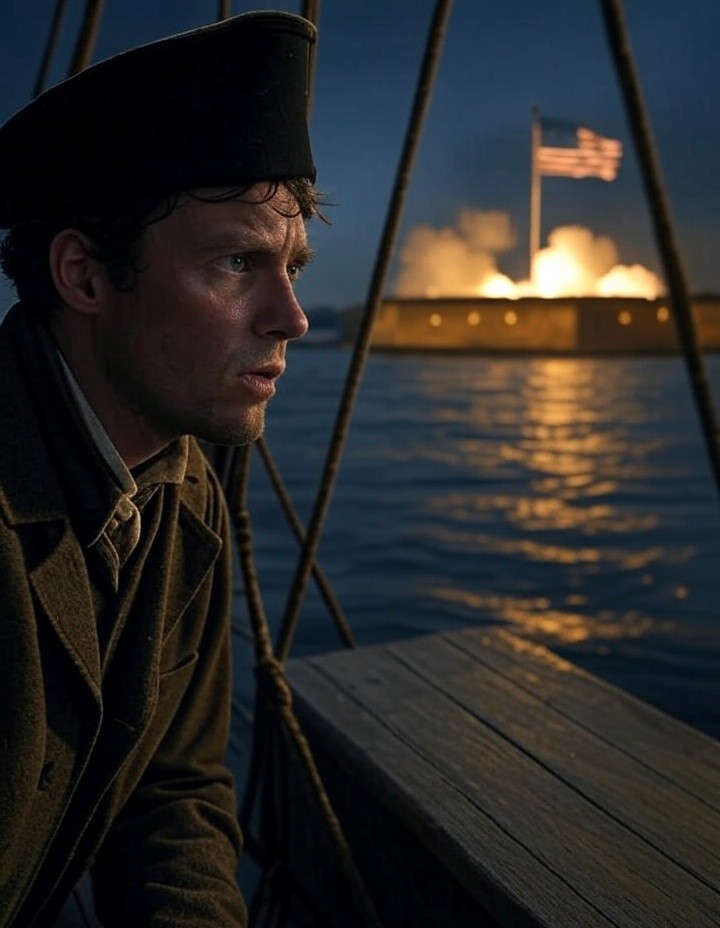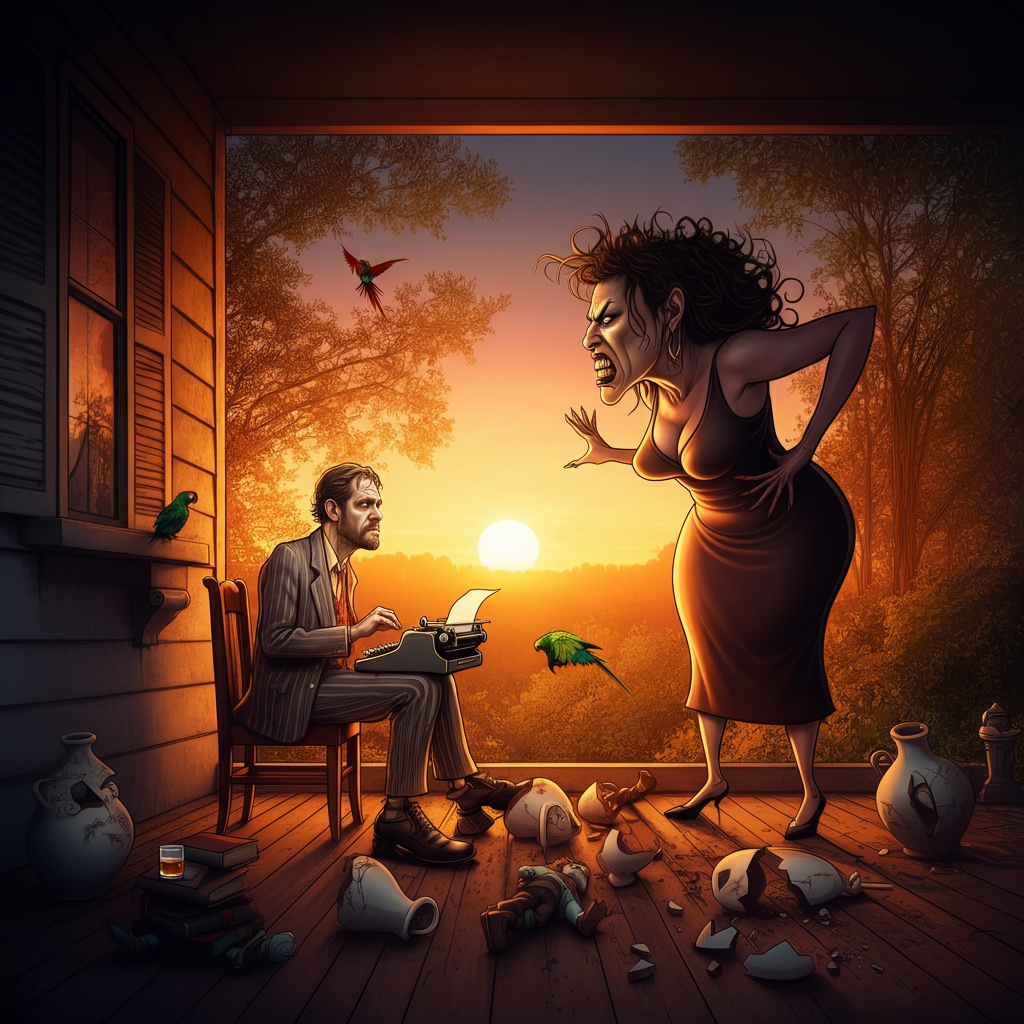Alright, strap in, dear reader, because we’re about to tear into the quivering, gelatinous underbelly of one very vaginal Malcolm Gladwell, the pop-sociology huckster who’s been peddling his slick, airport-bookstore pablum to the gullible masses for far too long. This week, the man who made a career out of repackaging obvious truths as revelatory “tipping points” has finally shown his true colors, and they’re a repulsive hue of pusillanimity. On a podcast – The Real Science of Sport, no less – Gladwell admitted he was “cowed” into supporting the absurd notion that men, by some perverse alchemy of ideology, can compete as women in sports. Cowed. Like a fucking farm animal.
Let that sink in. Let the full, wretched, and frankly hilarious implications of that statement marinate in the primordial ooze of your consciousness. This is a man who built a career on explaining the hidden mechanics of everything from ketchup to success, the guru who supposedly sees the intricate threads connecting outliers and dogwalkers and Jamaican sprinters. Yet, when faced with a cultural blitzkrieg demanding he assent to a proposition as biologically sound as a flat earth, he tucked his pathetic tail so far between his legs it was tickling his famously frizzy chin.
He was bullied. Intimidated. Pressured into nodding along with a fantasy so complete, so utterly detached from observable reality, that a reasonably bright toddler could debunk it with a crayon and a rudimentary understanding of anatomy. The alleged intellectual heavyweight, the celebrated thinker, apparently possesses a spine with the structural integrity of warm Jell-O. He saw the mob, torches aflame and pronouns sharpened, and decided that the path of least resistance was to simply shut his mouth and pretend the emperor’s new genitalia, were, in fact, stunning and brave. Now he’s backtracking, natch, whining that he’s “ashamed” of his silence at a 2022 MIT Sloan Sports Analytics Conference where he played moderator to a panel stacked with trans activists. Apparently, he sat there, nodding a long like a bobblehead, while some tranny athlete turned to panelist Ross Tucker and demanded, “You have to let us win.” Imagine it, dear reader: a grown-ass man, a supposed intellectual, heard that bald-faced lunacy and didn’t say a fucking word. Didn’t push back. Didn’t call out the absurdity of a man demanding a free pass to dominate women’s sports. Instead, he played the good little progressive, keeping his mouth shut because…why? Fear of the Twitter mob? Worried he’d lose his invite to the next Davos circle-jerk? Whatever the reason, he admits he was “dishonest,” letting “howlers” pass without comment, all because he was too spineless to speak the truth he claims he believed along: that males have no place competing in female sports categories.
Boo-fucking-hoo, Malcolm. This isn’t about tipping points or the 10,000-hour rule. This is about a complete and utter abdication of the one thing a writer – a thinker – is supposed to have: courage. The courage to look at a thing, a real thing, and describe it as it is, not as a screeching mob of idiots on social media demands it be described.
It occurs to me now that my dear reader may not know much, or anything at all, about our boy Malcolm. So, for those of you who’ve been too busy actually reading something worth a shit to notice his rise to fame, Gladwell, a Canadian scribbler with a mop of hair that screams “I’m trying too hard to be quirky,” burst onto the scene with The Tipping Point (2000), a book that took the radical stance that – get this – ideas spread like viruses. Wow. How groundbreaking. He followed it up with Blink (2005), where he told us trusting your gut is sometimes a thing, and Outliers (2008), where he “discovered” that success involves hard work and luck. No shit. The guy’s built an empire on stating the obvious with just enough jargon to make middle managers feel like they’re reading Foucault. A staff writer for The New Yorker and a podcast darling, he’s been coasting on this faux-intellectual schtick for decades, wrapping commonsense observations in a veneer of statistical razzle-dazzle that collapses under scrutiny faster than a house of cards in a hurricane. His work is the literary equivalent of a Ted Talk: flashy, shallow, and designed to make you feel smarter without actually challenging what you think.
This isn’t just a lapse in judgment; it’s a betrayal of reason itself. We’re talking about a guy who’s made millions pontificating on human behavior, yet when push came to shove, he folded like a cheap lawn chair under the weight of ideological bullying. Again, a five-year-old with a basic grasp of biology knows that boys are not and can never be girls, that men’s bodies – packed with testosterone, denser bones, and more muscle mass – give them a physical edge in sports that no amount of “identity” can erase. This isn’t rocket science; it’s not even high school biology. It’s the kind of truth so glaringly obvious it’s embarrassing to have to articulate it. Yet Gladwell, this self-styled guru of insight, claims he was “cowed” into silence. The man’s 62 years old, an alleged literary heavyweight with a platform bigger than most, and he’s whimpering about being bullied into silence? Pathetic.
This confession doesn’t just torch his credibility; it proves he never had any to begin with. A writer – a real writer – doesn’t just regurgitate trendy narratives or cower before the zeitgeist. A real writer wields his pen like a machete, cutting through bullshit to get to the truth, no matter who’s screaming what. Gladwell’s admission reveals him as a fraud, a man so desperate to stay in the good graces of the cultural elite and their luxury beliefs that he’d rather lie than stand up for what he claims to believe. And now he’s “ashamed”? Fuck you. This isn’t shame; it’s damage control. He’s seen the wind shifting – people like Riley Gaines and Amy Hamm calling him out on X for his flip-flopping – and he’s scrambling to save face. Too late, jackass. You’ve shown your hand, and it’s pitiful.
The kicker here is that he’s not even apologizing for the right reasons. He’s not sorry for propping up a narrative that undermines fairness in women’s sports or for gaslighting female athletes who’ve been forced to compete against deluded males. Nope. He’s sorry he didn’t speak up, sorry he got caught looking like an absolute coward. It’s the intellectual equivalent of a politician saying, “I regret if anyone was offended.” Weak sauce, Malcolm. If you’re going to take a stand now, at least have the balls to own the harm your silence caused. Female athletes have been cheated out of opportunities, podiums, and scholarships because of this nonsense, and you sat there, complicit, while it happened.
What is the value of a mind that can be so easily herded? What are we to make of his entire body of work now, knowing that the author’s primary operating principle isn’t intellectual curiosity, but a deep-seated fear of being yelled at?
His books now read like artifacts from a different, more chickenshit dimension. Blink becomes the story of a man who makes a snap judgement to save his own skin. Outliers seems less a study of success and more a roadmap for conforming to the prevailing groupthink to avoid ostracism. This confession re-contextualizes everything. It reveals the man behind the curtain is not a wizard, but just a very nervous publicist with a good haircut, frantically pulling levers to maintain an illusion.
So he feels bad about it now. He’s seen the tide turn just enough that he can peek his head out of his Canadian foxhole and whisper, “Um, for the record, I was a scared little bitch.” Fine. Good for him. But absolution is not on the menu. You don’t get a cookie for admitting you abandoned your post when the shooting started. You get contempt. You get whatever is beneath contempt. You get the acidic, burning realization that the people we were told were our intellectual navigators were just reading from a script handed to them by the most aggressive and least coherent people in the room.
So where does this leave Gladwell’s legacy? In the fucking toilet, that’s where. If he was ever a legitimate writer – and that’s a massive “if,” given his track record of repackaging platitudes as profundity – this episode proves he’s nothing more than a brainless weather vane, spinning whichever way the cultural winds blow. A real writer doesn’t need to be bullied into believing bullshit; they call it out, loud and proud, even when it’s inconvenient. Gladwell’s spent his career dodging hard truths in favor of palatable narratives, and this latest fiasco is just the cherry on top of a career built on intellectual cowardice. He’s not a thinker; he’s a performer, a snake-oil salesman who’s finally be caught with his pants down.
To the readers still clutching their dog-eared copies of Blink: wake up. Your boy Malcolm’s been exposed as a fraud who’d rather kowtow to ideologues than stand up for what’s right. And to Gladwell himself: next time you’re tempted to play the objective observer, do us all a favor and keep your lying mouth shut. Or better yet, try to retrieve your testicles out of whatever tranny’s purse you left them in and say what you mean. Until then, you’re just another chickenshit hack, cowed by the mob and unworthy of the page.
The whole pathetic spectacle leaves a taste in your mouth like cheap gin and cowardice. The man was never a danger, never a threat to the established order. He was its court jester, its high-gloss flatterer. And then the court demanded he believe that two plus two equals fish, he didn’t even have the balls to argue. He just asked what kind of fish.
N.P.: “God’s Gonna Cut You Down (feat. Adoration Destroyed)” – Dead Animal Assembly Plant




